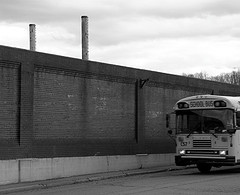 We take for granted the air we breath. Unless you are exercising, meditating, practicing yoga, or have health-related breathing issues like asthma, the involuntary responses of inhaling and exhaling hardly noticed. Air is a basic necessity of life, although it is not always included with shelter, food, and water. Unfortunately, this basic right to clean air is often being denied to our children as part of their education. For this Mother’s Day, I wish I could give children the gift of clean air at school.
We take for granted the air we breath. Unless you are exercising, meditating, practicing yoga, or have health-related breathing issues like asthma, the involuntary responses of inhaling and exhaling hardly noticed. Air is a basic necessity of life, although it is not always included with shelter, food, and water. Unfortunately, this basic right to clean air is often being denied to our children as part of their education. For this Mother’s Day, I wish I could give children the gift of clean air at school.
This post is part of the Moms Clean Air Force (MCAF) Blog Carnival for Mother’s Day. MCAF is a grassroot movement of mothers united to ensure their children and grandchildren will have the basic right of clean air:
Politicians in Congress, encouraged by irresponsible corporations and lobbyists, are trying to gut the Clean Air Act and dismantle the Environmental Protection Agency.
When you get right down to it, they’re fighting for the right to pollute our air.
Lined up against them to strengthen clean air regulations are some of the most respected medical organizations in the world: the American Lung Association; the American Medical Association; the American Heart Association; the American Academy of Pediatricians; the American Nurses Association.
One group is missing on this front: Mothers.
We want to change that. Moms have passion and power — an unbeatable combination — as we’ve seen in all the mom blogs. Now we have to harness that strength to fight back against polluters.
So we’ve launched a website and a movement: Moms Clean Air Force.
We’re asking Moms to join together, to come out in strength for our kids’ right to clean air — just as our parents fought for us, forty years ago, when the Clean Air Act was first passed.
If I could give a gift to the mothers and children of the world, it would be to ensure clean air for all children at school. As a teacher and a mother, I have been on both sides of the educational front. Our forefathers felt it important that all children had access to a free public education, but what happens when that access is negatively affected by air pollution? How can anyone succeed and flourish?
A recent study in Michigan has found that air pollution near schools is linked to poor academics and health for their pupils. EurekaAlert! reports:
Air pollution from industrial sources near Michigan public schools jeopardizes children’s health and academic success, according to a new study from University of Michigan researchers.
The researchers found that schools located in areas with the state’s highest industrial air pollution levels had the lowest attendance rates—an indicator of poor health—as well as the highest proportions of students who failed to meet state educational testing standards.
The researchers examined the distribution of all 3,660 public elementary, middle, junior high and high schools in the state and found that 62.5 percent of them were located in places with high levels of air pollution from industrial sources…
What explains this pattern of schools located near industrial pollution sources?
The authors suggest that the large amount of land that a school requires and the costs of land acquisition probably mean that officials searching for new school locations focus on areas where property values are low, which may be near polluting industrial facilities, major highways and other potentially hazardous sites.
Half of all states, including Michigan, do not require any evaluation of the environmental quality of areas under consideration as sites for new schools, nor do they prohibit building new industrial facilities and highways near existing schools.
Children are known to be more vulnerable than adults to the effects of pollution. Exposure to environmental pollutants during important times of physiological development can lead to long-lasting health problems, dysfunction and disease, the experts said.
“Our findings underscore the need to expand the concept of environmental justice to include children as a vulnerable population. Moreover, our findings show that children of color are disproportionately at risk,” the authors wrote. “There is a need for proactive school policies that will protect children from exposure to unhealthy levels of air pollution and other environmental hazards.”
Just as is often the case, minority children of low socio-economic status bear the brunt of toxic air pollution near their schools.
If our Bill of Rights were to be rewritten today, I think our forefathers would consider the right of citizens to clean air, clean water, and protection from environmental pollutants. As Maslow pointed out, without addressing basic necessities, the higher levels of psychological needs cannot be met. How can one even think of about the inalienable rights in the Declaration of Independence of life, liberty, and the pursuit of happiness when toxic air abounds?
Photo: ![]() Some rights reserved by takomabibelot
Some rights reserved by takomabibelot
[…] This piece by Jennifer Lance was cross-posted on EcoChildsPlay. […]